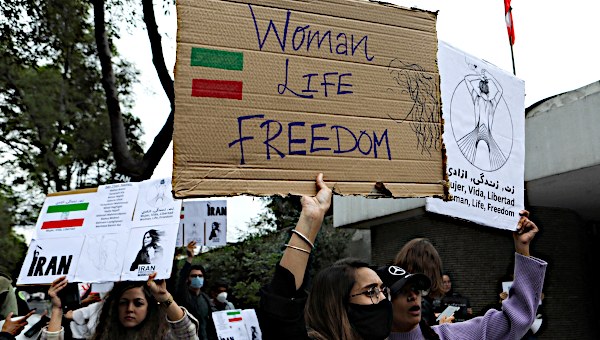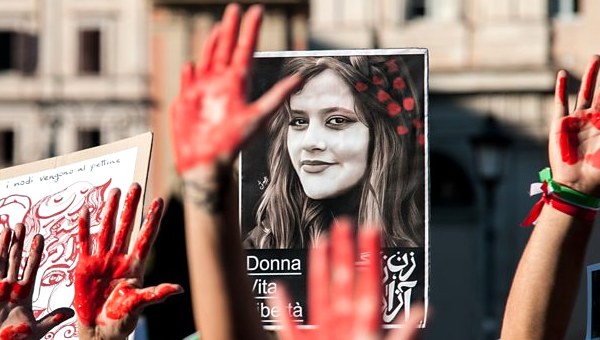In Iran Another Farcical Vote Takes Place
On March 1, the Islamic regime in Iran staged new ‘elections’ for the twelfth Parliament and the sixth Assembly of Experts. While the Islamist fundamentalists who took over the popular 1979 Revolution that toppled the dictatorial monarchy in Iran had no interest in a republic or any form of democracy, at the outset they could not disregard the main demand of the revolution for a representative government.
In the revised draft of the constitution that they concocted “the absolute sovereignty of the jurist,” the Supreme Leader Ayatollah Khomeini and after him, Ayatollah Khamenei, ruled as despots. Still, there have been times when the divided Majlis (Parliament) was able to exert some influence on them. Nevertheless, for much of the past 45 years of Islamist rule, Iranians had to choose between the lesser of two evils, but now even that choice has been denied, and the people only have the option of choosing amongst evils.
Through a relatively long process of homogenizing the ruling bloc, the hard-core Islamist followers of the Supreme Leader, known as the “Principlists,” completely removed the so-called Islamist “reformists” a.k.a. the loyal opposition, who were for years demanding more power sharing. Needless to say, the secular progressive opposition was never part of the power structure.
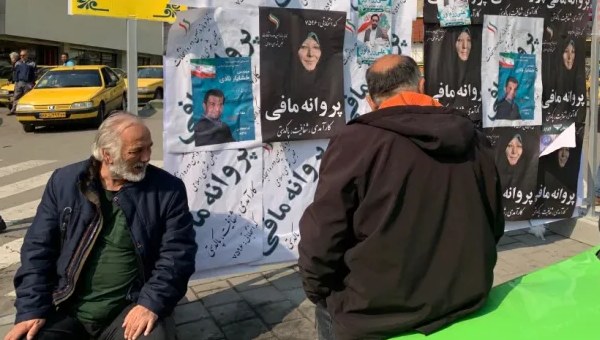
Unique Electoral Process
In Iran, the elimination of opposing candidates is done through a unique electoral process. All candidates for political office must be ratified by the Guardian Council, a 12-member body of clerics and Islamic judges appointed directly and indirectly by the Supreme Leader. In the recent parliamentary elections for the 290-member chamber, over a thousand candidates were eliminated. Despite all these intrigues, different competing groups of hardline Principlists entered the Parliament, and infighting has already started, particularly for the selection of the Speaker of the Parliament.
As for the Assembly of Experts, an 88-member body of clerics responsible for appointing the Supreme Leader, candidates are also ratified by the Guardian Council, which itself, as mentioned, is appointed by the Supreme Leader. Interestingly, the very body that is supposed to oversee, and if need be, dismiss the Supreme Leader, is selected by him through his own appointees in the Guardian Council.
The current election of the Assembly of Experts is particularly crucial as Iran’s current Supreme Leader Ali Khamenei will turn 85-years-old next month and will likely not outlast the eight-year tenure of the Assembly, which will be tasked with selecting his replacement. All indications are that Khamenei wants his son Mojtaba to be his successor, a junior cleric who has hurriedly been promoted to a higher rank. Mojtaba has close relations with the powerful IRGC (Islamic Revolutionary Guard Corps), and the Supreme Leader hopes that through handpicked candidates for the Assembly of Experts, he will be able to fulfill his desire before he dies.
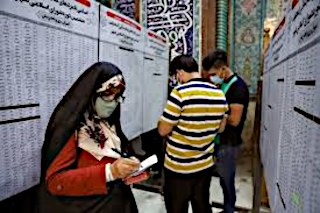
To this end, all senior contenders for the Assembly of Experts, especially those likely to be in opposition to Khamenei’s plans, were barred from candidacy just prior to the March elections. This included former President Hassan Rouhani, who served for two terms from 2013 to 2021. In earlier drama, Hashemi Rafsanjani, a leading founder of the Islamic Republic, was found drowned in his swimming pool in 2017, and Khomeini’s grandson, Hassan Khomeini, considered a “reformist,” was excluded from running in the 2016 Assembly of Experts elections. His father, Ahmad Khomeini, had mysteriously died of “cardiac arrest” in 1995. Many other senior clerics including grand Ayatollahs are also absent from the Assembly. Still, it is not clear who will eventually succeed Khamenei.
The latest elections were also the first since the remarkable Women, Life, Freedom movement that shook the foundations of the Islamic regime in 2022 and led to thousands of deaths, maiming, torture, and imprisonment after Mahsa Amini, a young women arrested for allegedly violating Iran’s hijab law, lost her life while in custody.
Boycott Leads to Lowest Voter Turnout
Furthermore, almost all political organizations and activists, including the regime’s loyal opposition, called for a boycott of the elections, and the regime faced having the lowest turnout since its establishment. Aside from those who are part of the regime or on the payroll of numerous religious foundations, many who did vote, voted out of fear of losing their jobs or not getting needed services if they could not prove that they had participated.
Despite all the efforts of the regime, including an extension of voting hours by two hours, the overall participation in the elections was very low and well below the announced 41-percent voter turnout by the unsupervised election authority. Indeed, this was the lowest for legislative elections since the 1979 Islamic Revolution. In the capital Tehran, of nearly 8 million eligible voters, only 24 percent or 1.8 million cast their votes. According to several sources inside Iran, almost half of those were spoiled ballots. This, along with the low turnout, was a clear signal to the Iranian government of widespread discontent.
Then again, the Islamic regime has clearly shown that it has no aptitude or interest in self-reform, and as time has passed, it has become more corrupt, more suppressive, and more obscurantist. Now, it solely relies on the support of its various repressive apparatuses for survival, on militant Islamist (read ‘terrorist’) groups that it has created and/or supported throughout the region, and of course, the opportunistic backing of Russia and China. Yet, the series of successive revolts against the regime by Iranians, particularly women and youth, has shown the major existential challenges it faces.
The confluence of economic, political, cultural, and ecological crises created by this regime will continue to escalate its crisis of legitimacy. Even the closest members of the regime feel such uncertainty, expressed by sending their children to the West with vast amounts of stolen money, including many to Canada, which has become a haven for them. •
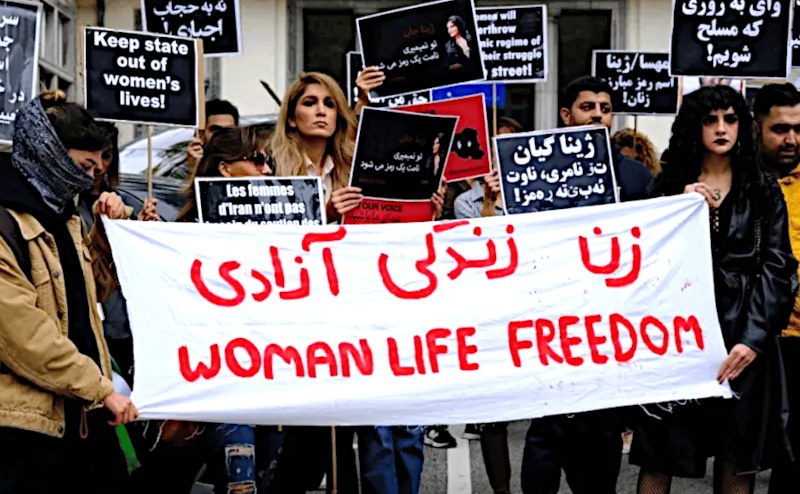
This article first published on the Open Canada website.




